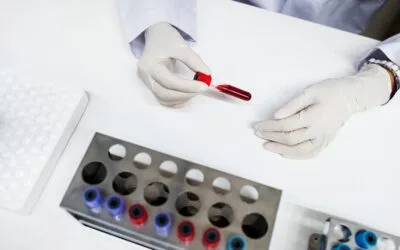Malaria remains a significant global health concern, particularly in regions where the disease is endemic. It is crucial to explore and understand the efficacy of anti-malaria drugs in both prevention and treatment. In this article, we will delve into the effectiveness of various anti-malaria drugs, their mechanisms of action, and their role in combating this deadly disease.
The Global Impact of Malaria
Malaria, caused by the Plasmodium parasite transmitted through infected mosquitoes, affects millions of people worldwide. According to the World Health Organization (WHO), there were an estimated 229 million cases of malaria in 2019, leading to approximately 409,000 deaths. The burden of malaria is especially high in sub-Saharan Africa, where children under the age of five and pregnant women are particularly vulnerable.
Anti-Malaria Drugs: A Vital Tool in Prevention and Treatment
Anti-malaria drugs play a crucial role in both preventing and treating malaria. They can help prevent the transmission of the parasite, reduce the severity of the disease, and save lives. These drugs are available in various forms, including oral medications, intravenous injections, and even topical applications.
Commonly Used Anti-Malaria Drugs
Several anti-malaria drugs have been developed and are widely used in the prevention and treatment of malaria. Some of the most commonly used drugs include:
- Chloroquine: Chloroquine has long been used as a first-line treatment for uncomplicated malaria. However, the widespread emergence of drug-resistant strains of the parasite has limited its effectiveness in many regions.
- Artemisinin-based Combination Therapies (ACTs): ACTs are now the recommended treatment for uncomplicated malaria. These combinations typically include an artemisinin derivative, which rapidly reduces the parasite load, coupled with a partner drug that clears the remaining parasites. ACTs have shown high efficacy in treating malaria and have contributed significantly to reducing mortality rates.
- Mefloquine: Mefloquine is an alternative treatment for malaria, particularly in areas with chloroquine-resistant strains. It is effective against both uncomplicated and severe malaria. However, due to potential side effects, including neuropsychiatric symptoms, its use is limited to certain populations.
- Doxycycline: Doxycycline is primarily used as a prophylactic drug for individuals traveling to malaria-endemic regions. It is also effective in the treatment of malaria when other drugs are not available or suitable. However, it is contraindicated for use in pregnant women and young children.
- Primaquine: Primaquine is a key drug for the prevention of relapse in certain types of malaria. It is particularly important for eliminating the dormant liver stage of the parasite (hypnozoites) in Plasmodium vivax and Plasmodium ovale infections.
Mechanisms of Action
Anti-malaria drugs work through various mechanisms to combat the parasite and prevent or treat malaria. These mechanisms include:
- Interfering with the parasite’s lifecycle: Many anti-malaria drugs target specific stages of the parasite’s lifecycle, preventing its replication and survival. For example, chloroquine and mefloquine inhibit the parasite’s ability to break down hemoglobin, essential for its survival.
- Interfering with DNA synthesis: Drugs like artemisinin and its derivatives interfere with the parasite’s ability to replicate its DNA, ultimately leading to its death.
- Disrupting protein synthesis: Some anti-malaria drugs, such as doxycycline, inhibit protein synthesis in the parasite, disrupting its normal function and survival.
Challenges and Limitations
While anti-malaria drugs have proven effective in preventing and treating malaria, several challenges and limitations exist:
- Drug resistance: The emergence of drug-resistant strains of malaria parasites, particularly to chloroquine, poses a significant challenge. This necessitates the development of new drugs and combination therapies to combat resistance.
- Adherence and access: Ensuring adherence to prescribed treatment regimens and access to anti-malaria drugs in remote and underserved areas remain significant challenges. Efforts are ongoing to improve access and ensure the availability of these drugs to those who need them.
- Side effects: Some anti-malaria drugs, such as mefloquine, are associated with potential side effects that limit their use in certain populations. Balancing the benefits and risks of these drugs is crucial in patient management.
Conclusion
Anti-malaria drugs are vital tools in the prevention and treatment of malaria. They have significantly contributed to reducing the burden of the disease worldwide. However, ongoing research and development efforts are necessary to combat drug resistance, improve access to these drugs, and minimize side effects. By continuing to explore the efficacy of anti-malaria drugs, we can make significant strides in eradicating malaria and saving lives globally.
Remember, if you are planning to use anti-malaria drugs, consultwith a healthcare professional or a travel medicine specialist to ensure that you receive the appropriate medication for your specific travel destination and personal health situation.

